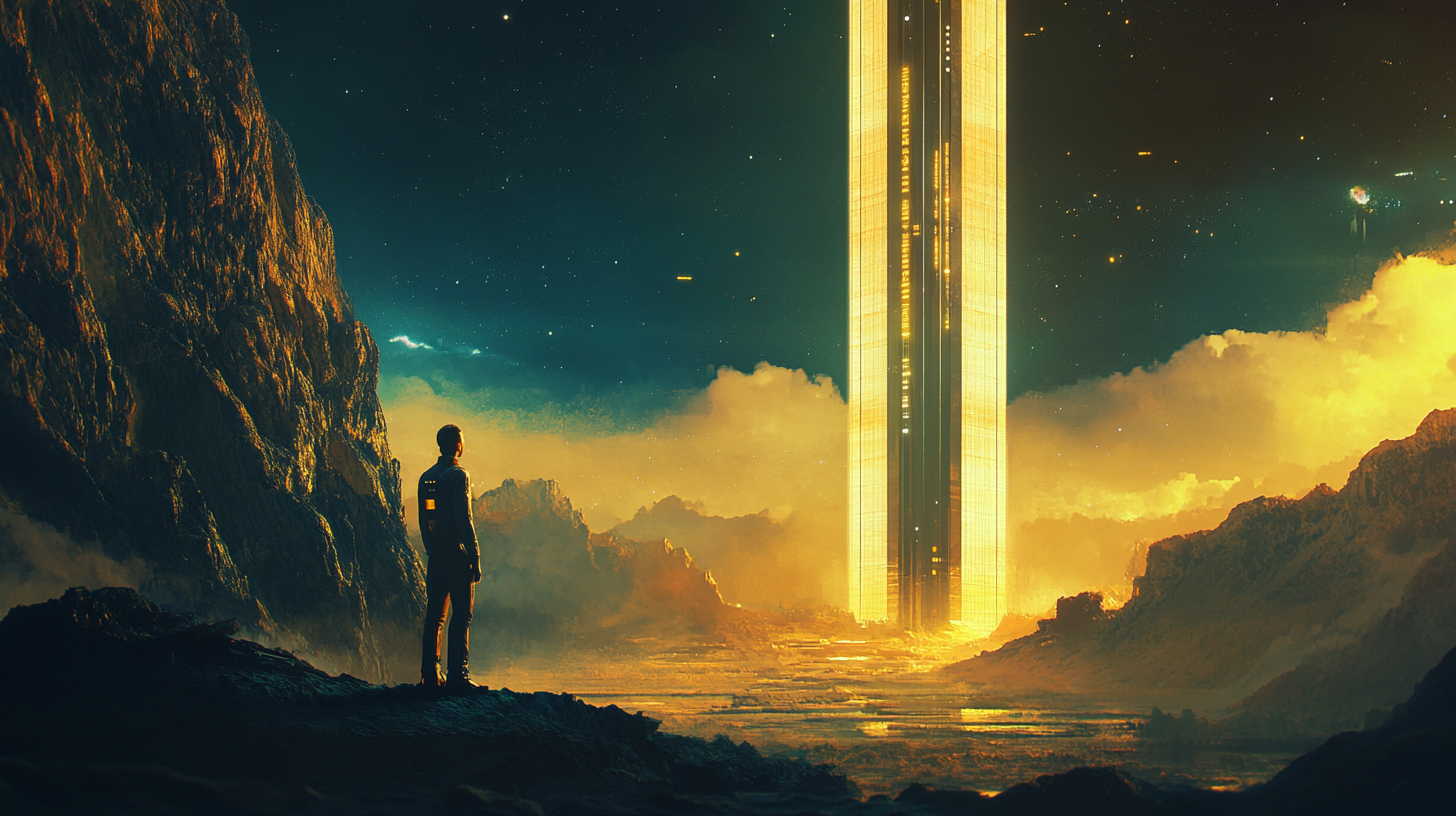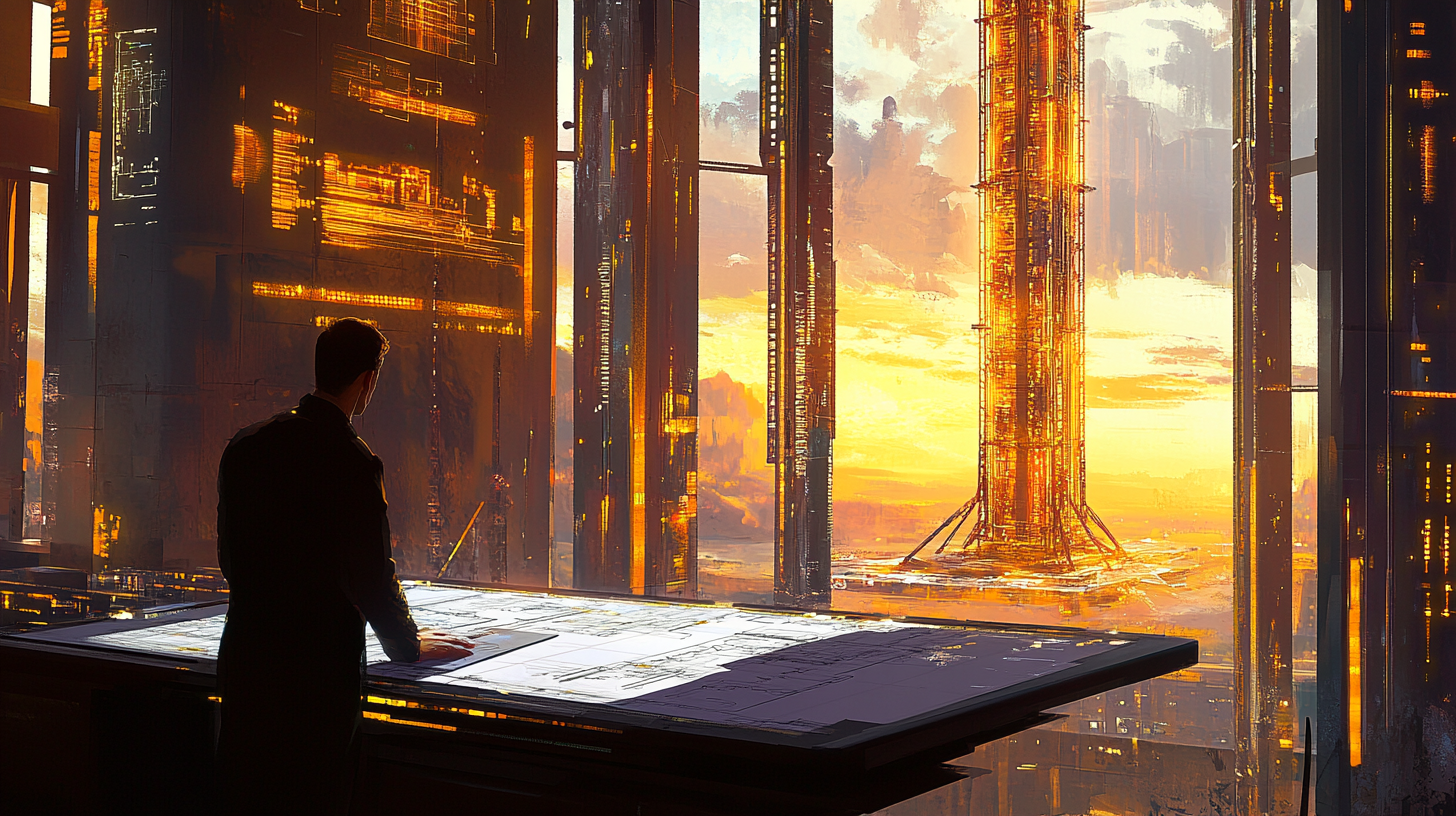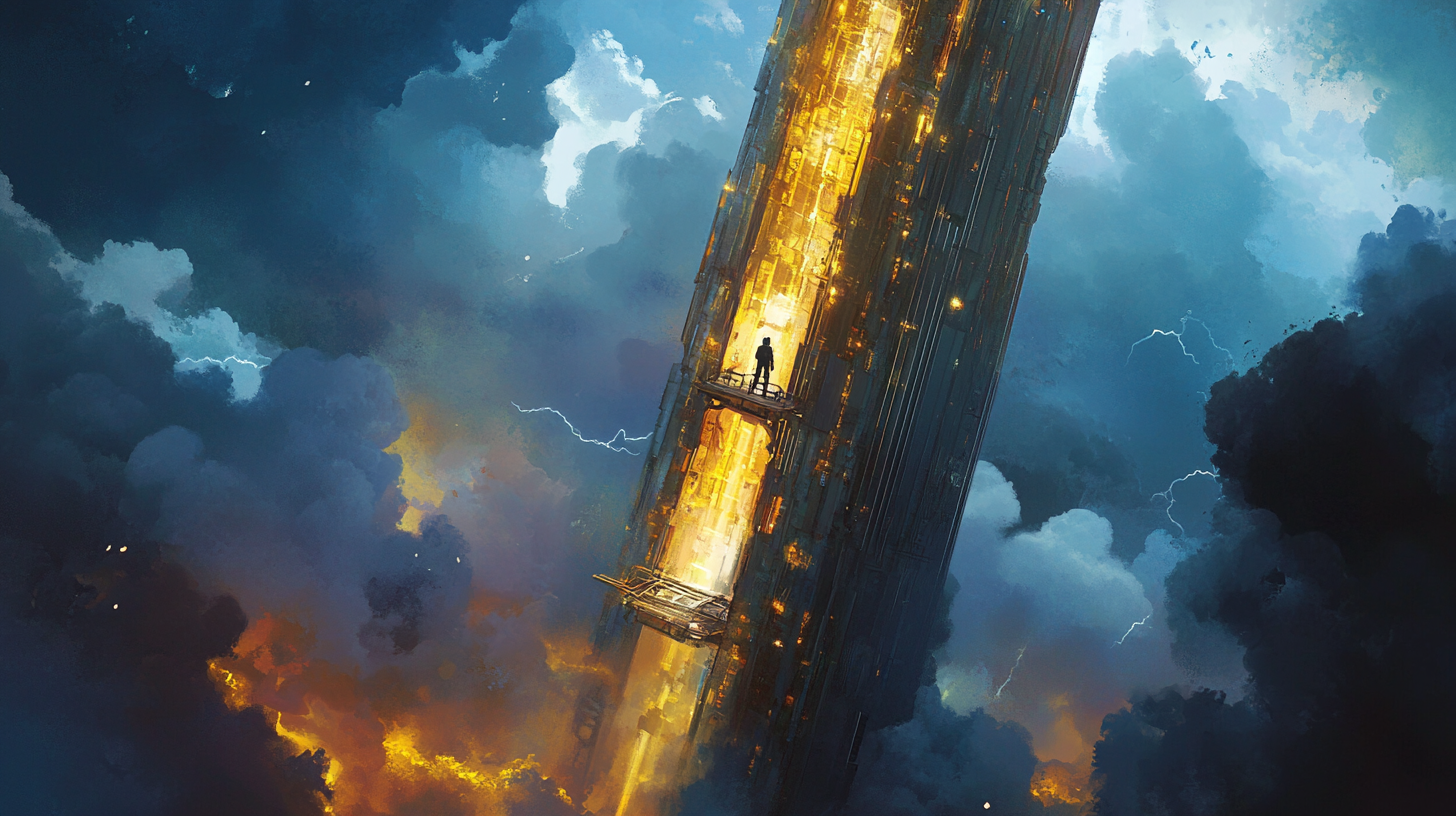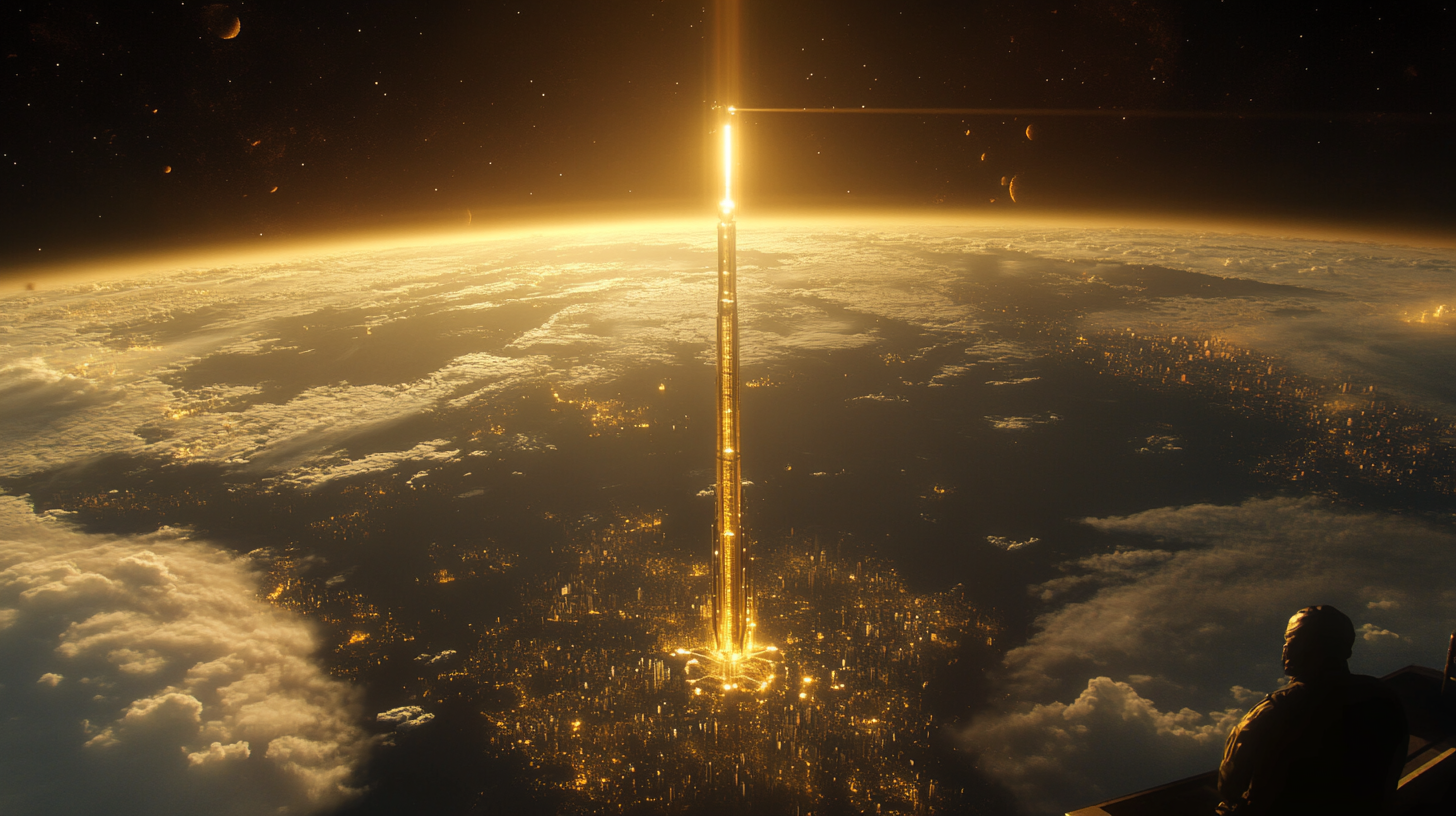How One Man’s Mastery Lifted Mankind
Vannevar Morgan’s pursuit of mastery in “The Fountains of Paradise” reflects sacrifice, innovation, and dedication, offering timeless lessons for men who seek to build and achieve.

A Vision Beyond Earth
Arthur C. Clarke's "The Fountains of Paradise" tells the story of a man who dares to dream on a scale few can imagine. At the center of the novel is the space elevator, a tower that spans from the Earth's surface to the stars above. This structure, if built, would change the course of human history.
Behind this bold vision stands Vannevar Morgan. He is a builder in the truest sense of the word. Where others see obstacles, Morgan sees challenges to overcome. Where others hesitate, he acts. The mountain, the sky, and even the vacuum of space become parts of his great plan. His work is not only about machines and steel. It is about lifting mankind to a new level of achievement.
The world of "The Fountains of Paradise" is one where ambition and reality meet at the edge of possibility. In that world, Morgan's journey begins.
The Drive for Mastery — Morgan's Mind and Craft
Vannevar Morgan is a man whose life is defined by his work. In "The Fountains of Paradise," Clarke gives the reader a figure who is not content to admire the wonders of the world from afar. Morgan seeks to shape the world through knowledge, planning, and perseverance. His mastery is the product of years of discipline, hard study, and a refusal to accept defeat.

Morgan's mind operates with precision. He weighs every possibility, studies every risk, and works tirelessly to solve problems that most would consider impossible. His dream of the space elevator depends on breakthroughs in materials science. The tower's cables must be made of a substance stronger than anything yet produced. Morgan drives teams of scientists and engineers to develop this new material, pushing the limits of human ingenuity.
Yet, Morgan's mastery does not end with technical skill. He knows that such a project demands more than mathematics and machinery. The tower can only rise with the support of governments, financiers, and the people who live near the mountain chosen as the base. Morgan moves with care through this maze of politics and tradition. He negotiates, persuades, and at times, confronts those who stand in his way.
Throughout the novel, Morgan's personal discipline is as impressive as his professional ability. He plans his life with the same care he gives to his work. His habits, routines, and choices reflect a man who understands that mastery of the mind must come before mastery of the world. His strength lies in his ability to unite thought and action toward a single great purpose.
Innovation Against All Odds
Morgan's vision of the space elevator in "The Fountains of Paradise" would have remained a dream without innovation at every stage. The scale of the orbital tower project forces Morgan and his team to move beyond existing technology. No material on Earth could bear the stresses of a structure that links the planet's surface with geostationary orbit. Morgan leads the search for a new substance that will meet this need. The result is a cable material of unmatched strength and lightness, made possible through the relentless efforts of scientists inspired by Morgan's determination.

Innovation in Morgan's world is not limited to the laboratory. The tower's success requires fresh thinking in every field. Morgan devises new construction methods to anchor the tower to the peak of a sacred mountain. He designs systems that enable work to continue in hostile conditions, where thin air and rough terrain would defeat ordinary builders.
Perhaps Morgan's most significant innovation is the way he handles the human challenges. He faces opposition from religious leaders, political figures, and ordinary people who fear change. Morgan listens when he can, compromises when necessary, and stands firm when the goal is at risk. His ability to steer the project through this storm of resistance shows a form of innovation as vital as any machine.
Morgan reshapes the world not only with steel and cable but with ideas. He proves that true innovation demands courage, patience, and the will to see beyond the present to the possible future.
The Price of Greatness — Sacrifice at Every Level
Morgan's quest to build the space elevator in "The Fountains of Paradise" demands a price that few men would pay. His brilliance and innovation bring him close to achieving what had once been thought impossible, but they also place him on a path of personal sacrifice. Clarke presents this cost without sentiment. The space elevator rises because Morgan gives everything he has to see it through.

From the start, Morgan understands that greatness does not come without risk. His health begins to fail under the strain of endless work, sleepless nights, and the constant pressure of responsibility. He suffers injuries during accidents that occur at the construction site. Morgan pushes his body to its limit, often ignoring the warnings of those who care for him. His focus on the tower leaves little room for personal relationships or rest.
Morgan also sacrifices his peace of mind. The weight of the project isolates him. Though surrounded by experts and allies, he carries the final burden alone. Every setback, every danger, and every moral choice falls on his shoulders. The tower may bring humanity closer to the stars, but it comes at the cost of the man who dared to build it.
Clarke shows that true mastery and innovation require more than intellect. They demand the courage to pay whatever price greatness asks. Morgan gives that price without complaint, knowing the work is worth it.
A Legacy That Lifts Mankind
The tower that Morgan builds in "The Fountains of Paradise" is more than a marvel of engineering. It marks a turning point in human history. The space elevator makes it possible for mankind to leave Earth behind and begin reaching out to the stars in earnest. What had once been the work of rockets and rare missions becomes a daily act of progress. Morgan's vision, forged through mastery, innovation, and sacrifice, opens a new chapter in the story of mankind.

His example offers lasting lessons. Morgan shows what a man can achieve when he combines intellect with perseverance. He reminds the reader that noble goals are worth the hardships they demand. His courage in the face of obstacles, both natural and human, stands as a model for those who seek to build and create in the real world.
Classic science fiction often gives us characters who dream of more than what is, and who work to bring those dreams to life. Morgan belongs among these figures. His story calls to those who believe that great works require great men. It speaks to the timeless truth that mastery of the world begins with mastery of the self.

